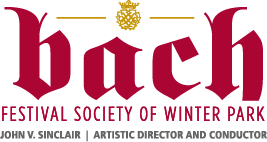Meet the Artists: Aspen Trio and John Harbison
Aspen Trio
The Aspen String Trio is one of the rare professional string trios performing and touring today. Celebrated for visionary programming and virtuoso performances offered with humor and insight, AST performs the complete trios of Beethoven, Mozart, and Schubert, as well as lesser known blockbuster works by Dohnanyi, Hindemith, Martinů, Rozsa, Klein, Veress, Villa-Lobos and Ysaÿe, among others. Their many “themed” concert programs are in high demand, including a Goldberg Variations lecture recital, a Recovering “Degenerate” Music program offering works of heart stopping beauty by composers tragically suppressed by the Nazi regime, and a new program that imaginatively explores John Harbison’s brilliant new trio, “a major addition to the tiny string trio repertory,” paired with the work that inspired it, Mozart’s K563 “Divertimento,” an extraordinary masterpiece that hides under its title. During his recent centennial year, AST introduced Mieczysław Weinberg’s ravishing String Trio, only recently re-discovered.
Consistently praised for their masterful sensitivity and nuance and ultra-refined musicianship, their tight ensemble work and musical intelligence, AST formed as summer artist teaching colleagues at Aspen Music Festival and School more than twenty years ago. Violinist David Perry, formerly a member of the Orpheus Chamber Orchestra, now leads the Pro Arte Quartet, in residence at University of Wisconsin-Madison, where he holds an endowed professorship; he is also concertmaster of the Chicago Philharmonic. Violist Victoria Chiang is a member of the artist faculty of the Peabody Conservatory of Music, was formerly on the faculty of The Juilliard School and the Hartt School of Music, and previously served on the board of the American Viola Society. Cellist Michael Mermagen is Associate Professor of Cello at UMKC Conservatory of Music and Dance; formerly Associate Professor of Cello and Chamber Music at The Catholic University of America, he has served as Chamber Symphony Principal Cellist of the Aspen Music Festival and School for more than 25 years.
Returning to live performance after the pandemic, the Trio’s engagements in the 2022 season include performances paired with educational outreach at the Chamber Music Society of Logan (Utah) and at Louisiana State University in Baton Rouge. They have previously performed on the Rutenberg Series (Tampa), the Artists’ Series (Tallahassee), the Beaux Arts Chamber Music Series (Naples), the Ashville Chamber Music Series, at Chamber Music Kelowna (BC), the Los Angeles Music Guild, Barge Music (New York) and the National Gallery of Art (Washington, DC). They have held residencies in Texas, Georgia, the Carolinas, Iowa, Alabama, Delaware, Washington, and Colorado. For six seasons AST was Ensemble-in-Residence at the University of Baltimore.
As teaching faculty at distinguished universities and conservatories, Trio members are committed to incorporating educational components into all residencies, offering not only masterclasses but also an array of workshops that address aspects of students’ professional lives beyond their instruments.
The Aspen String Trio has recorded music of Mozart, Beethoven and Strauss, and is currently preparing the complete string trios and other music of Martinů for release on the Naxos label.
John Harbison
John Harris Harbison is among the most prominent and prolific of American composers; his highly varied and interesting output has earned him the moniker, "the great master of ambiguity." His principal works include three string quartets, three symphonies, the cantata The Flight Into Egypt (Pulitzer Prize, 1987), and three operas, including The Great Gatsby (commissioned and premiered by The Metropolitan Opera).
Harbison was born in Orange, NJ, on December 20, 1938, and grew up in Princeton. While a teenager he received musical guidance from Roger Sessions, one of his formative influences, while also developing considerable skills as a jazz pianist. Additional teachers include Walter Piston at Harvard, Boris Blacher at the Berlin Hochschule für Musik, and Earl Kim at Princeton. As influential as any teacher was Harbison's marriage to violinist Rose Mary Pederson -- the inspiration for many of his violin pieces. Since 1969, he has been professor of music at the Massachusetts Institute of Technology. More than 30 of his compositions have been recorded and his music is published exclusively by Associated Music Publishers.
Exceptional economy and expressive range mark Harbison's music. His works embrace elements of jazz as well as the early and late Baroque styles of Heinrich Schütz and J. S. Bach. At times, the harmonic palette brings to mind the sound of Prokofiev or the rigorous serialism of 1950s Stravinsky. He is also a practiced writer on the art and craft of composition and was recognized in his student years as an outstanding poet, later writing the libretto for his The Great Gatsby.
Harbison's music first garnered national attention with the Boston Symphony Orchestra's 1976 premiere of Diotima, a commission by the Koussevitzky Foundation. This, his first major work for orchestra, showed him an adept symphonic composer -- a talent that he then applied to a string of concerted works, such as his Piano Concerto (1978) (recipient of the 1980 Kennedy Center Friedheim Award), and the Violin Concerto (1978-1980, rev. 1987), written for and premiered by Rose Mary Harbison. Other concertos came later, including one for viola (1989), oboe (1991), cello (1993), and flute (1993).
Occasionally, as in The Most Often Used Chords (Gli accordi più usati) of 1993, Harbison enjoys putting compositional restrictions on himself to ignite his imagination. A great percentage of Harbison's works are for voice -- either solo, small ensemble, or large chorus; most notable among these are his Mirabai Songs (for soprano and percussion ensemble) and his operas, which are, in addition to Gatsby: Full Moon In March (1977) and Winter's Tale (1974, rev. 1991).
Harbison has worked extensively as a conductor, particularly with the Cantata Singers (1969-1973) and the new-music group Collage (established in 1984). He is a champion of twentieth century music, especially composers he feels have been neglected.
Insights & Sounds: Aspen Trio with John Harisbon, lecturer
Thursday, March 23 at 7:30 pm | Tiedtke Concert Hall
Tickets from $15.



